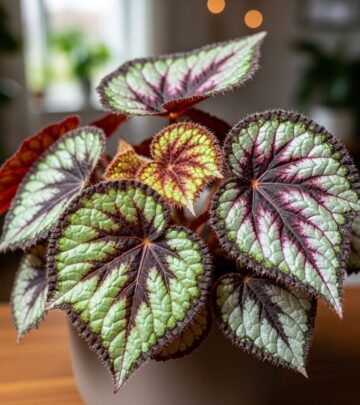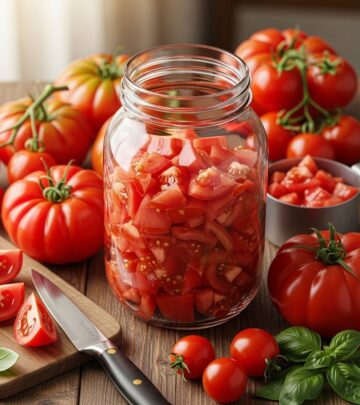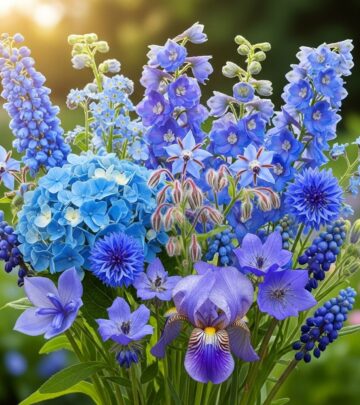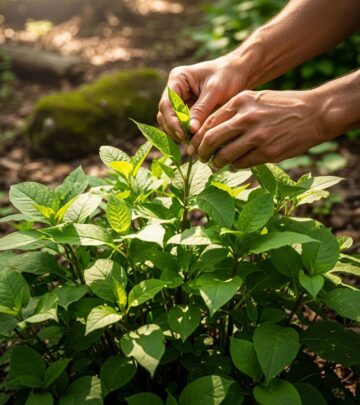Annual Flowers: 81 Stunning Varieties And Growing Tips
Explore a vibrant world of 81 beautiful annual flowers, complete with care tips, to energize your garden every season.
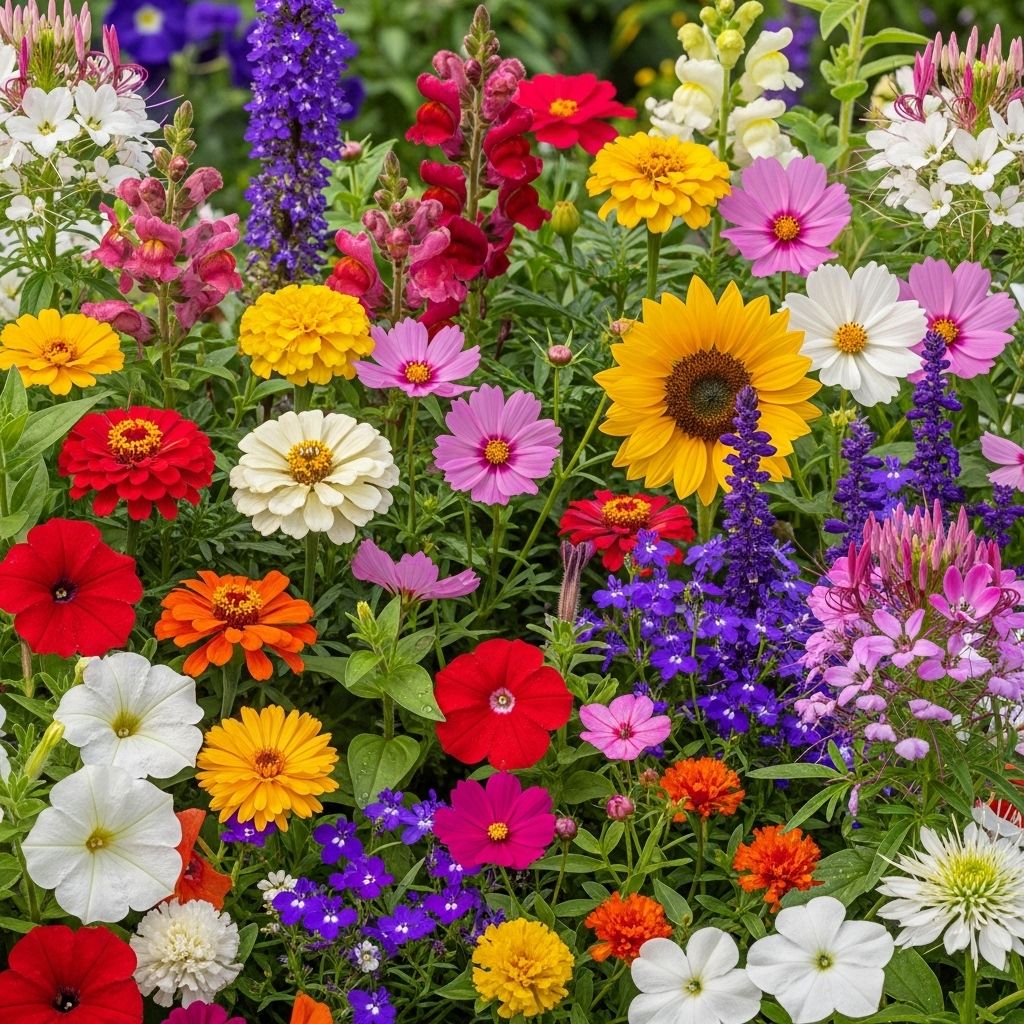
Image: HearthJunction Design Team
81 Stunning Annual Flowers for Your Garden
Annual flowers are the heartbeat of vibrant gardens, infusing landscapes with bold color, fragrance, and seasonal variety. Unlike perennials, annuals complete their life cycle within a single growing season, rewarding gardeners with exuberant blooms from planting until frost. Whether you want to fill flower beds, window boxes, or hanging baskets, annuals are a versatile choice for every garden style. In this guide, we profile 81 of the most stunning annual flowers—featuring their botanical names, sunlight needs, growth habits, and tips for success. Let your creativity bloom!
What Are Annual Flowers?
Annual flowers germinate, grow, flower, set seed, and die all within the same year. They differ from perennials—which live for several years—and biennials, which bloom the second year after planting. Many annuals originate from tropical and subtropical climates, thriving in warm weather and providing impressive color when perennial options are limited. Some plants labeled as annuals are technically tender perennials grown as annuals in cooler climates.
- Fast Color: Annuals bloom prolifically, bringing instant pizzazz to beds and containers.
- Creative Flexibility: Change your color scheme each year using annuals.
- Pollinator Favorites: Many annuals attract bees, butterflies, and beneficial insects.
- Easy Maintenance: Most annuals are trouble-free and bloom vigorously with basic care.
How to Use Annuals in Your Garden
Annual flowers serve as dynamic design elements throughout the garden. Use them to fill in gaps, edge walkways, create bold swathes of color, or accent mixed borders. They’re also perfect for:
- Container Gardening: Brighten patios or balconies with compact annuals in pots or hanging baskets.
- Cut Flower Production: Many annuals produce long-lasting stems for floral arrangements.
- Pollinator Gardens: Support wildlife with annuals rich in nectar and pollen.
- Seasonal Displays: Rotate annuals for a fresh garden look every year.
Annual vs. Perennial Flowers
| Aspect | Annual Flowers | Perennial Flowers |
|---|---|---|
| Lifespan | One season | Two or more years |
| Bloom Period | Prolific, all season | Typically a few weeks |
| Maintenance | Low to moderate | Variable; regular care after flowering |
| Design Use | Seasonal color, containers, borders | Landscape backbone, repeat bloom |
81 Annual Flowers With Names, Pictures, and Growing Tips
Below you’ll find a curated selection of 81 beautiful annual flowers. Each profile features the botanical name, sunlight requirements, growth habit, and care advice to help you select the best options for your space. While most are annuals, a few short-lived perennials—often grown as annuals—are included due to their popularity.
Annual Mallow
| Botanical Name | Malva trimestris |
| Sun Requirements | Full sun |
| Height | 3-4′ |
Sometimes called rose mallow, this flower is not a true rose but a relative of hibiscus. It boasts vivid pink blooms with darker centers and a spiral petal arrangement, blooming over about three months—perfect for a burst of summer color.
Annual Phlox
| Botanical Name | Phlox drummondii |
| Sun Requirements | Full sun to partial shade |
| Height | 6-12″ |
Annual phlox comes in a dazzling range of warm hues—pink, red, orange, purple, and dark blue. It prefers mildly rich soil and moderate water, thriving even with limited sunlight, making it ideal for semi-shaded spots.
Amaryllis
| Botanical Name | Hippeastrum spp. |
| Sun Requirements | Full sun to partial shade |
| Height | 12-36″ |
Popular for their large, lily-like flowers, amaryllis are perennials in warm climates but may be grown as annuals elsewhere. Their winter blooms make them a favorite for indoor and holiday displays.
Begonia
| Botanical Name | Begonia spp. |
| Sun Requirements | Partial shade to shade |
| Height | 6-18″ |
Beloved for their waxy, colorful blooms and decorative foliage, begonias excel in shaded borders and containers. Choose from a multitude of varieties for both sun and shade.
Celosia
| Botanical Name | Celosia argentea |
| Sun Requirements | Full sun |
| Height | 12-36″ |
With feathery plumes or cockscomb shapes in vivid orange, yellow, pink, and crimson, celosias are show-stoppers in beds and bouquets.
Cosmos
| Botanical Name | Cosmos bipinnatus |
| Sun Requirements | Full sun |
| Height | 1-6′ |
These tall, airy annuals offer delicate, daisy-like blooms in soft pastels and bold magentas. They attract pollinators and self-sow easily for annual returns.
Impatiens
| Botanical Name | Impatiens walleriana |
| Sun Requirements | Shade to partial shade |
| Height | 6-24″ |
Perfect for brightening shady corners, impatiens come in a full spectrum of colors, blooming continuously without deadheading.
Marigold
| Botanical Name | Tagetes spp. |
| Sun Requirements | Full sun |
| Height | 6-36″ |
Marigolds produce abundant, ruffled blooms in gold, orange, and yellow. They’re easy to grow, deter pests, and are ideal for borders or containers.
Nasturtium
| Botanical Name | Tropaeolum majus |
| Sun Requirements | Full sun to part shade |
| Height | 12-18″ (trailing forms longer) |
Nasturtiums offer edible blooms and leaves and thrive in poor soils. Their cheerful orange, yellow, and red flowers cascade beautifully from baskets or beds.
Petunia
| Botanical Name | Petunia x hybrida |
| Sun Requirements | Full sun |
| Height | 6-18″ |
Renowned for their wide color palette and versatility, petunias shine in hanging baskets, window boxes, and borders.
Sunflower
| Botanical Name | Helianthus annuus |
| Sun Requirements | Full sun |
| Height | 2-12′ |
Sunflowers bring cheerful faces and towering stature to the garden. Grow dwarf varieties for containers or giants for bold statements.
Zinnia
| Botanical Name | Zinnia elegans |
| Sun Requirements | Full sun |
| Height | 12-36″ |
Zinnias are easy to grow, highly productive, and available in a rainbow of bright colors and diverse bloom forms. They’re a must for cutting gardens.
Easy Tips for Growing Annual Flowers
- Choose the Right Site: Match annuals to your garden’s sunlight and soil moisture.
- Feed for Success: Use balanced flower fertilizer for lush growth and repeat blooms.
- Water Wisely: Most annuals prefer steady moisture but avoid waterlogged roots.
- Deadhead Regularly: Remove spent blooms to extend the flowering period.
- Mulch: Mulching suppresses weeds and conserves soil moisture.
Popular Ways to Display Annuals
- Mass plantings for striking color-blocked beds
- Mixed borders alongside shrubs and perennials
- Hanging baskets with trailing annuals
- Window boxes with compact or cascading forms
- Patio pots and urns for portable color
Choosing and Sourcing Annual Flowers
Many garden centers, seed catalogs, and online shops offer an outstanding range of annual flower seeds and starts. When choosing plants, select healthy seedlings with no signs of pests or disease, or opt for direct seeding of easy annuals like zinnias, sunflowers, and cosmos after the last frost.
Frequently Asked Questions (FAQs)
Q: What is the difference between annual and perennial flowers?
A: Annuals complete their life cycle in one season, giving maximum color the first year. Perennials return for several years but typically have a shorter bloom window each season.
Q: Can I grow annual flowers in containers?
A: Yes! Annuals are perfect for pots, hanging baskets, and window boxes. Select varieties suited to container life and provide regular water and fertilizer.
Q: Which annuals are best for attracting pollinators?
A: Zinnias, cosmos, sunflowers, and marigolds are all excellent for bees and butterflies, supporting healthy garden ecosystems.
Q: Do any annuals tolerate shade?
A: Yes, impatiens and begonias thrive in shade. For partial shade, try annual phlox and some varieties of coleus.
Q: How can I keep my annuals blooming all season?
A: Deadhead spent blooms, feed regularly, maintain even moisture, and pinch back leggy growth for bushier plants and more flowers.
Conclusion
Adding annual flowers to your garden is a sure way to infuse it with vivid color, lively textures, and seasonal excitement. With this guide to 81 spectacular annuals, you can mix, match, and experiment for an ever-changing and endlessly rewarding garden landscape. Start planning your next vibrant display today!
References
Read full bio of medha deb







